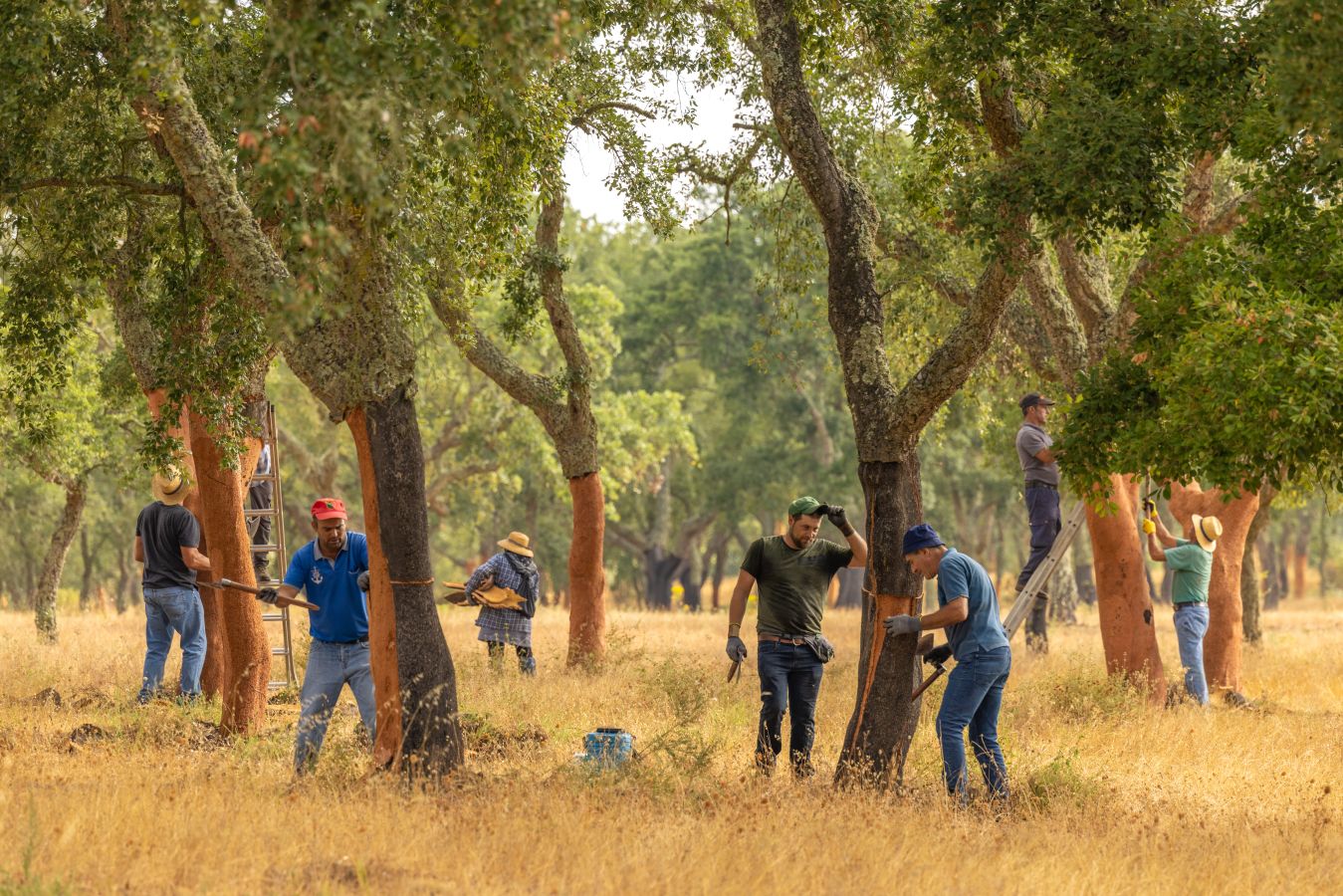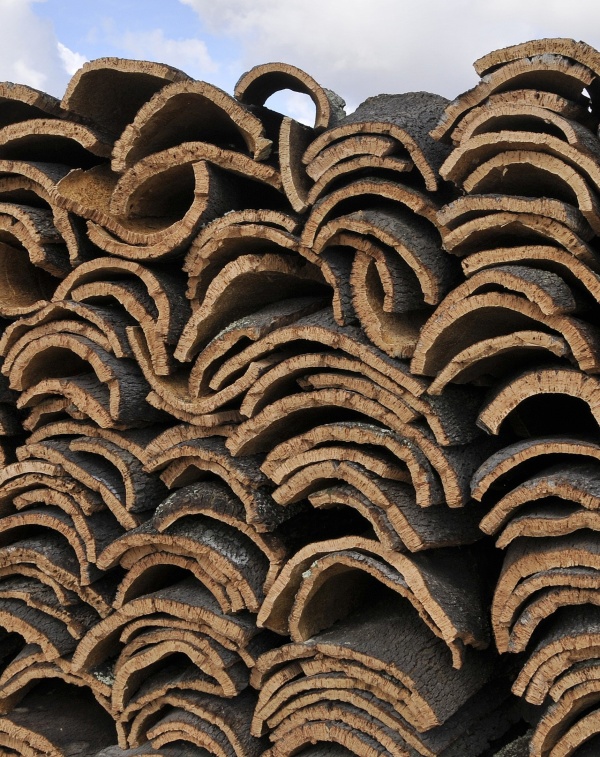Cork is an indelible factor of social and economic development for the countries of the Western Mediterranean. It combines a centuries-old tradition with the most modern practices of an industry of the future, and one that leads the way in sustainability. The extraction of cork is the most well-paid agricultural work in the world, due to the expertise and care that it requires.
The cork oak forests are one of the few examples of totally sustainable forestry, due to the market price of cork. Despite the variety of cork products, it is wine bottle stoppers that drive the cork industry: they represent 70% of the market value of cork.
in exports
(preliminary data - 2024)
of the total of portuguese exports
(preliminary data - 2024)
jobs in Portugal
At the forefront of the industry, Portugal is a world leader in the production, processing and marketing of cork. It has the largest area of cork oak forests in the world, with more than 720 thousand hectares (34% of the total), and produces near 85 000 tons of cork (46% of the total). It is the world's largest exporter of processed products, reaching 1,232 million euros in 2023.
Portuguese cork exports represented around 1,5% ofthe total of Portuguese exports and represents a trade balance that has remained solid, with an import coverage rate by exports of 5.2 times and a surplus of over 920 million euros, reflecting the strategic relevance of cork to the Portuguese economy.

Desertification is one of the most pressing problems facing humanity. In rural areas, it can only be prevented through the sustainable use of land and the maintenance of economic viability. The cork oak forests, forming environmentally and economically sustainable systems, provide an important ally in the prevention of desertification. In addition to preserving the biodiversity and regulating the water cycle, they also halt depopulation (constituting economically viable agroforestry systems).
No other cork substitute product will be as sustainable, from an environmental point of view, taking into account the poor soils and harsh climatic conditions. In some villages, cork is the main income, keeping these areas alive with economic and social activities. Cork not only creates wealth, but also distributes it, making these regions economically viable.
From an urbanistic perspective, the inhabitants also rely in this unique ecosystem. In addition to the regulation of water, control of the air, small-scale agricultural production, domestic and personal products, there is also a huge range of leisure and recreational activities.

In the seven cork-producing countries of the Mediterranean, more than 100,000 people directly or indirectly depend on this sector, according to the WWF. In Portugal, the cork oak and forest systems represent 7.875 direct manufacturing jobs. Thousands of indirect jobs in activities related to oak also have undeniable importance: collection of medicinal plants and mushrooms, production of honey and wax, coal production, hunting, livestock, bird-watching, tourism and horse rides. There is a huge range of possibilities that attract investment, promote national industry, guarantee jobs, and contribute to raising environmental awareness.
The Cork industry’s vocational training centre (Cincork) organises a set of training courses in the areas of quality, hygiene and safety, foreign languages, industrial management, production environment, communication and marketing, among others. It provides different levels of training to the industry professionals: from modular training to ongoing training, training for entrepreneurs and courses of adult education and training that award academic and professional certificates. In 40 years of existence, Cincork has conducted 3,600 training courses and 6.7 million hours of training, with 2,000 dedicated trainers and 66,700 trained participants.
Cincork is dedicated to the development of training programs for both young people entering the workforce and company employees, covering various areas.
